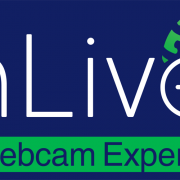Pineapple Support To Host Anti-Bullying Webinar
Pineapple Support, the adult industry’s leading mental health resource, will host a free webinar for adult content creators on Thursday, November 19th, during Anti-Bullying Week 2020. The special webinar, “Anti-Bullying: Sex Workers United Against Bullying,” will be led by therapist and adult performer Jasmine Johnson, LCSW.
“This workshop will address the impact of bullying in the workplace, specifically sex work,” says Leya Tanit, founder of Pineapple Support. “Jasmine Johnson is a licensed clinical therapist and boasts over twenty years of experience as an adult entertainer and educator. This webinar is going to tackle some of the issues many performers face in this industry and Jasmine’s passion, experience and expertise are going to help teach how to overcome bullying in any form”
Prior to the webinar, there will be a live Anti-Bullying Twitter AMA with Johnson, in collaboration with Chaturbate. Anyone that wishes to participate can do so by asking questions of Johnson via the hashtag #AskPineappleSupport, starting at 12pm PT (4PM ET) on November 19th.
“It can be challenging to navigate, as a NSFW content creator, the difference between consumers being assertive and downright aggressive,” says Johnson. “We will discuss how to set boundaries personally and professionally; develop a plan to having an anti-bullying platform; and also educate consumers on appropriate ways to communicate with their favorite stars and not violate the Equality Act of 2010! That’s right, it is illegal to harass anyone at work, so let’s get into our rights and responsibilities at being civil behind the screen!”
Pineapple Support was founded by Tanit in 2018, after a string of losses in the adult industry from depression and other mental illnesses. The organisation, which is a qualified 501(c)(3) tax-exempt organization in the United States and a registered charity in the UK, has so far connected over 1800 adult performers to mental health services, including free and low-cost, therapy, counseling and emotional support.
The Anti-Bullying: Sex Workers United Against Bullying webinar will take place via Zoom on Thursday, November 19th at 5pm ET and is scheduled to last one hour but may extend. Please visit https://pineapplesupport.org/webinars/ for more information and to access the webinar link.









